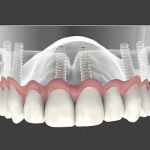
- Understanding the Importance of Long-Term Care for Dental Implants
- Daily Oral Hygiene Practices for Dental Implants
- Professional Maintenance and Regular Dental Visits
- Common Challenges in Dental Implant Care and How to Overcome Them
- Real-Life Experiences and Insights on Implant Care
Understanding the Importance of Long-Term Care for Dental Implants
Dental implants offer a durable and natural-feeling solution for tooth loss, but their longevity heavily depends on consistent and effective long term maintenance and care. Unlike natural teeth, implants require specialized attention to avoid complications such as peri-implantitis—a form of inflammation that can threaten implant stability. Understanding how to care for dental implants properly is essential to preserving their function, aesthetics, and your overall oral health.
The Role of Oral Hygiene in Implant Success
Maintaining excellent oral hygiene is the cornerstone of dental implant care. Plaque buildup around implants can lead to gum inflammation and bone loss, which jeopardizes the implant’s foundation. Therefore, adopting a daily care routine tailored for implants is crucial.
Impact of Lifestyle Choices
Factors such as smoking, diet, and even stress can influence implant health. Smoking, for instance, impairs healing and increases infection risk, making maintenance efforts less effective. Being mindful of these aspects supports better long-term outcomes.
Daily Oral Hygiene Practices for Dental Implants
Routine care at home is vital for keeping dental implants clean and healthy. Here are some detailed practices to integrate:
Proper Brushing Techniques
Use a soft-bristled toothbrush or an electric toothbrush with gentle settings to clean around implants. Brushing twice a day helps remove plaque effectively without damaging the gum tissues surrounding the implant.
Interdental Cleaning
Flossing is equally important. Specialized implant floss or interdental brushes are designed to reach beneath the implant crown where bacteria accumulate. Neglecting these areas often leads to inflammation.
Use of Antimicrobial Mouth Rinses
Rinsing with an antimicrobial mouthwash can reduce harmful bacteria and promote healthier gums. However, it’s important to choose alcohol-free formulas to avoid drying out oral tissues.
Professional Maintenance and Regular Dental Visits
Even with diligent home care, professional support is essential to maintain dental implants long term. Dental professionals provide deep cleanings and monitor implant health, identifying early signs of trouble.
Routine Check-Ups and Cleanings
Scheduling dental visits every 3 to 6 months allows hygienists to remove hardened plaque (calculus) that home brushing cannot reach. Regular evaluations also help detect inflammation or bone loss before serious damage occurs.
Specialized Tools for Implant Care
Dental offices often use ultrasonic instruments and special plastic or titanium-coated scalers that clean implants safely without scratching their surfaces. This helps prevent bacterial colonization and prolongs implant life.
Common Challenges in Dental Implant Care and How to Overcome Them
Despite best efforts, some patients face hurdles when caring for their implants. Awareness and tailored solutions make a big difference.
Dealing with Sensitivity and Discomfort
Some people experience mild gum sensitivity around implants, especially after dental cleanings. Using a toothpaste for sensitive teeth and avoiding aggressive brushing can ease discomfort while maintaining cleanliness.
Managing Peri-Implantitis Risks
Peri-implantitis, an inflammatory condition around implants, is one of the most serious threats to implant longevity. Early symptoms include redness, swelling, and bleeding gums. Prompt professional intervention and meticulous home care are vital to halt progression.
Impact of Poor Oral Habits
Habits like teeth grinding or chewing hard objects can cause implant damage. Wearing a night guard and being mindful of these habits help protect your investment.
Real-Life Experiences and Insights on Implant Care
Take the experience of Michael, who received dental implants five years ago. Initially, he underestimated the importance of daily flossing and skipped regular dental visits. Over time, he developed peri-implant inflammation that threatened the implants. After consulting his dentist and adopting a comprehensive care routine—including professional cleanings every four months and specialized oral hygiene tools—Michael successfully restored his implant health and maintained them well.
Another case involves Lisa, a non-smoker who combined excellent oral hygiene with lifestyle changes, such as improving diet and stress management. Her implants have remained stable and free of complications for over eight years, illustrating how long term maintenance and care are a shared responsibility between patient and professional.
For those seeking expert guidance or the right oral care products, Dentistry Toothtruth is a trusted resource offering tailored recommendations to support your dental implant journey.







 Montclair Perio & Implant Specialists: Anne Hartnett, DDS0.0 (0 review)
Montclair Perio & Implant Specialists: Anne Hartnett, DDS0.0 (0 review) First Choice Dental- Madison East4.0 (289 review)
First Choice Dental- Madison East4.0 (289 review) Silicon Valley Dental4.0 (214 review)
Silicon Valley Dental4.0 (214 review) Michael Roessler D.D.S.4.0 (405 review)
Michael Roessler D.D.S.4.0 (405 review) Dental Playground3.0 (35 review)
Dental Playground3.0 (35 review) Hook Orthodontics5.0 (53 review)
Hook Orthodontics5.0 (53 review) The Importance of Oral Health Education During Pregnancy for a Healthy Pregnancy
The Importance of Oral Health Education During Pregnancy for a Healthy Pregnancy Best Tips for Brushing Your Teeth Properly for Healthy Gums: Essential Techniques for Oral Health
Best Tips for Brushing Your Teeth Properly for Healthy Gums: Essential Techniques for Oral Health Why Skipping Dental Checkups Can Lead to Bigger Oral Health Problems
Why Skipping Dental Checkups Can Lead to Bigger Oral Health Problems Advantages of Porcelain Dental Restorations
Advantages of Porcelain Dental Restorations How Can Diabetes Cause Tooth and Gum Problems? Preventing and Managing Oral Health Issues
How Can Diabetes Cause Tooth and Gum Problems? Preventing and Managing Oral Health Issues Healthy Habits for Promoting Good Oral Health and Hygiene: Tips for a Healthy Smile
Healthy Habits for Promoting Good Oral Health and Hygiene: Tips for a Healthy Smile